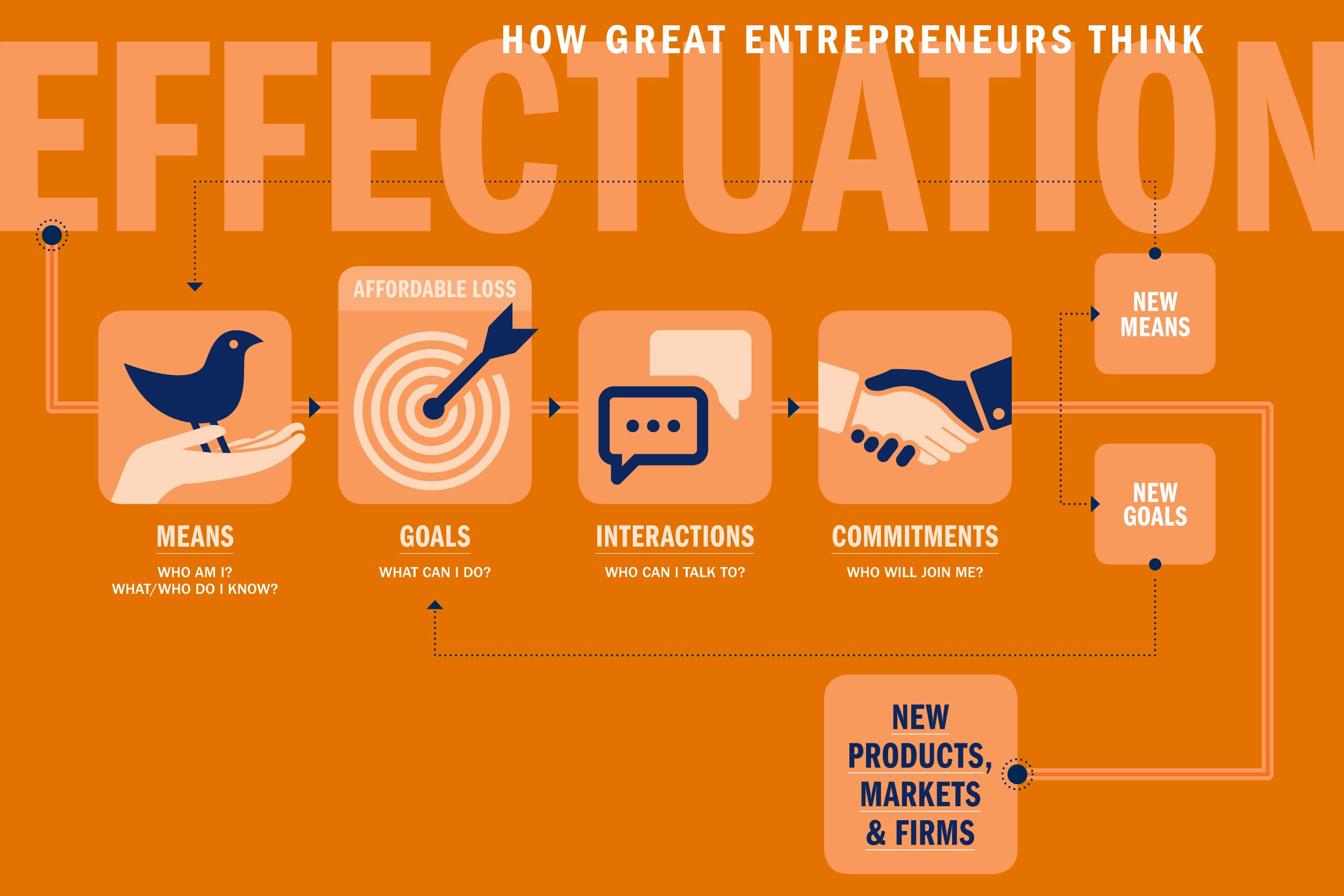Q. What is effectuation?
A. “Effectuation” is the term I coined for the lessons that expert entrepreneurs have learned. It’s a unique logic based on non-predictive control. Normally, we believe that, to the extent that we can predict the future, we can control it. That is thinking causally. Successful entrepreneurs have learned the inverse lesson – that if you control certain things in the present, you can create the future, instead of predicting it. That is thinking effectually.
The simplest example I give starts in the kitchen. If you are cooking causally, you first determine the dish you want to cook and then buy or collect all of the ingredients. If you are cooking effectually, you look at what is available in your kitchen and determine what you can make with it. Perhaps a neighbor comes by with an unexpected ingredient, changing the whole dish.
Similarly, business students are traditionally taught to establish goals, predict cost estimates and work backward to determine a business plan. A good entrepreneur, on the other hand, looks at the resources they have – their education, personality, character and skills. Then they look at their network. Who can offer key resources? Who can they talk to? Who might want to join them? Those people come on board with their own resources and tools, and they start co-creating the future based on what they have.
Q. How did you identify this mindset?
A. I wanted to see what made expert entrepreneurs tick. I defined an expert as someone who had 10 or more years of experience founding and running companies, had started more than one venture, experienced both success and failure and taken at least one company public. At the time, only 245 people in the world fit this definition. Forty-five of them agreed to participate.
I asked each to think aloud as they went through a 17-page problem set of typical issues entrepreneurs encounter, and developed the concept of effectuation based on their responses. Since that first study, my collaborators and I have written more than 200 case studies, talked to thousands of entrepreneurs, managers and others, gathering more and more data.
Q. Why is effectuation more successful than traditional methods?
A. If you use effectuation, your success is likely to be more novel because you are not trying to tailor your work to a particular outcome or prediction. You will end up with something more innovative and probably enjoy a larger magnitude of success.
Furthermore, effectuation reduces the cost of failure because you largely use what you already have. If you fail, you lose nothing more than you can afford to lose.







